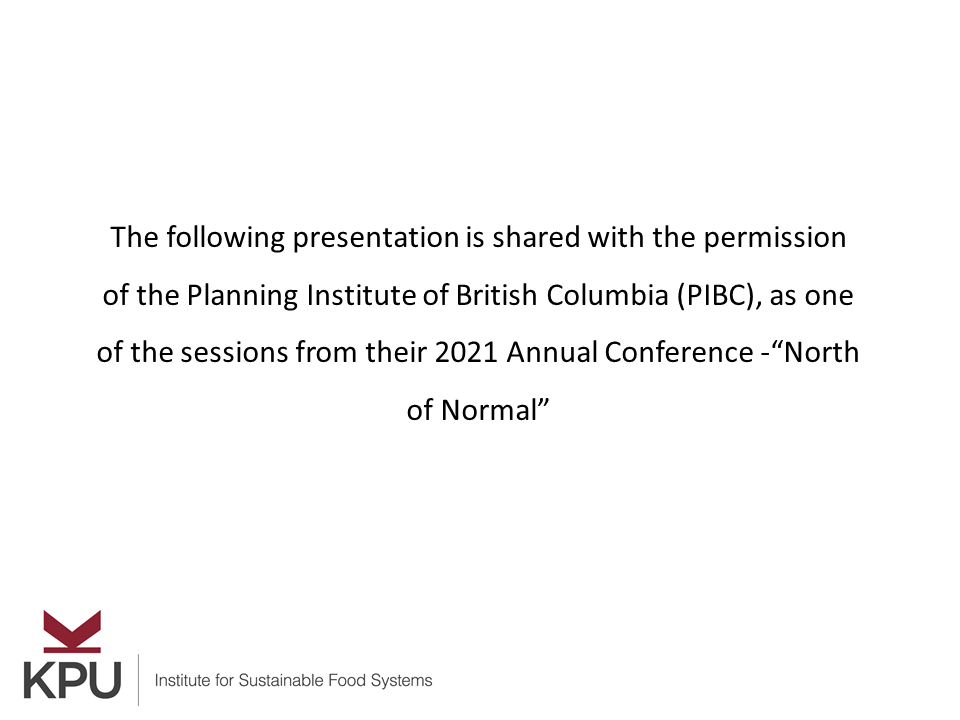This 3 phase research project aimed to examine the following critical areas of food systems planning in Canada:
1) the skill and knowledge of planners and degree of engagement in food systems planning;
2) the tools, resources, and policy environments that support their work, and;
3) the processes used to develop and implement food systems policies and plans at a bioregion scale.
The project worked across local and national scales to understand how and where food systems planning is occurring and to develop tools and resources to advance sustainable food systems in Canada through planning.
Phase 1 - National Survey of Professional Planners and Food System Practitioners
April 2020 - March 2021
The first phase addressed the lack of training and experience among planning practitioners. This was accomplished with a national survey, developed through a strategic partnership with the Canadian Institute of Planners (CIP). The survey helped identify key knowledge and training gaps amongst planners.
Phase 1 Reports:
Planner Survey Summary Report:
Complete Survey Report:
Summer 2023 "Plan Canada" Article:
Click here to view the article online
The 2021 Planning Institute of BC (PIBC) Conference Presentation and Panel Discussion

Phase 2 - Case Study Analysis of Food Systems Planning and Policy Environments
April 2021 - March 2023
The second phase of the project addressed the patchwork of food policies and programs in Canadian policy environments. This included evaluation of planning environments – including the tools (i.e. plans and regulatory structures), resources (i.e. data and information) and processes (i.e. governance and networks) - that support food systems planning. This was completed through case study analysis and interviews of select policy jurisdictions in Canada. A toolkit of priority practices resulting from this research has been produced to assist planners in their food planning efforts.
Phase 2 Reports:
Priority Practices Summary - Mar 2024:
Full Toolkit of Priority Practices for Planners - Mar 2024
Full Phase 2 Final Report (pending)
Phase 3 - Local Food Systems Planning and Policy Development
January - March 2024
The third phase of the project will address challenges to the implementation of food systems planning priority practices at a bioregional scale, focusing on three bioregions in the province of BC. These include Vancouver Island, Southwest BC, and the Okanagan. ISFS has completed bioregion food system studies in the latter two regions and is beginning the same on Vancouver Island. Focus groups with planning practitioners in each of these regions provided insights into the challenges and opportunities to advance food systems planning practices at the regional scale. These learnings can help practitioners in jurisdictions across Canada to advance their food planning efforts.
Bioregion focus groups summary report (pending) – link to follow.
This project is funded by the Social Sciences and Humanities Research Council (SSHRC) through the College and Community Social Innovation Fund (CCISF). For additional information please contact ISFS Senior Research Associate, Kristi Tatebe, Kristine.tatebe@kpu.ca
